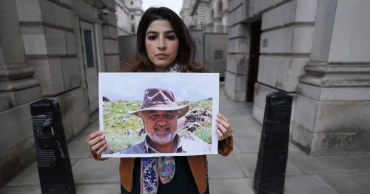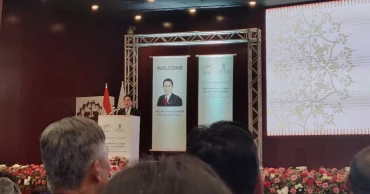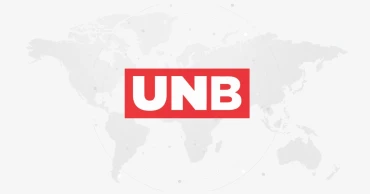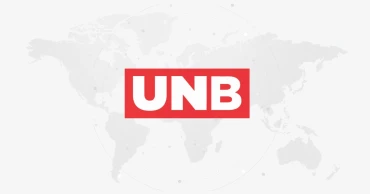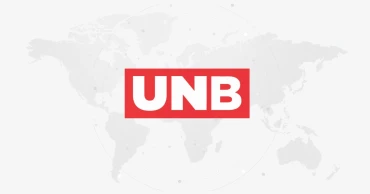agreement
Hamas and Fatah are near an agreement on who will oversee postwar Gaza
Palestinian officials report that Fatah and Hamas are nearing an agreement to establish a committee of politically neutral technocrats to manage Gaza following the ongoing war. This arrangement would effectively end Hamas' rule in Gaza and potentially aid ceasefire discussions with Israel.
The two factions have a history of unsuccessful reconciliation attempts since Hamas took control of Gaza in 2007. Israel has dismissed any role for either Hamas or Fatah in Gaza's postwar administration, with Prime Minister Benjamin Netanyahu emphasizing ongoing Israeli security control over the region and the return of hostages as priorities.
Syrian insurgents advance toward Hama as govt forces counterattack
A Palestinian Authority official confirmed that preliminary consensus on the committee's formation was reached after weeks of negotiations in Cairo. The proposed body, comprising 12-15 members primarily from Gaza, would report to the Palestinian Authority and coordinate humanitarian and reconstruction efforts with local and international actors.
Hamas and Fatah have agreed on broad terms but are still negotiating details, including committee member selection. An announcement is expected after a meeting of all Palestinian factions in Cairo, though no timeline has been provided. Both Palestinian and Israeli officials have avoided public comment on the matter.
The U.S. supports reviving the Palestinian Authority's governance over both Gaza and the West Bank as a step toward statehood, though Israel opposes such an outcome. Meanwhile, some Fatah leaders criticize the proposal, with Jibril Rajoub warning it could deepen divisions between Gaza and the West Bank.
Syria sends in reinforcements to halt insurgents from advancing after seizing Aleppo
The committee's work would begin after a ceasefire agreement, which has faced repeated delays despite mediation efforts by American and Arab diplomats. The conflict escalated after Hamas’ October 7, 2023, attack on Israel, which left over 1,200 people dead and led to the abduction of 250 hostages. Israel’s military response has devastated Gaza, resulting in over 44,000 Palestinian deaths, largely women and children, according to local health authorities.
1 year ago
Tentative US-Iran agreement: Could billions of dollars in frozen assets be released?
The United States and Iran reached a tentative agreement this week that will eventually see five detained Americans in Iran and an unknown number of Iranians imprisoned in the U.S. released from custody after billions of dollars in frozen Iranian assets are transferred from banks in South Korea to Qatar.
The complex deal — which came together after months of indirect negotiations between U.S. and Iranian officials — was announced on Thursday when Iran moved four of the five Americans from prison to house arrest. The fifth American had already been under house arrest.
Details of the money transfer, the timing of its completion and the ultimate release of both the American and Iranian prisoners remain unclear. However, U.S. and Iranian officials say they believe the agreement could be complete by mid- to late-September.
A look at what is known about the deal.
WHAT’S IN IT?
Under the tentative agreement, the U.S. has given its blessing to South Korea to convert frozen Iranian assets held there from the South Korean currency, the won, to euros.
That money then would be sent to Qatar, a small, energy-rich nation on the Arabian Peninsula that has been a mediator in the talks. The amount from Seoul could be anywhere from $6 billion to $7 billion, depending on exchange rates. The cash represents money South Korea owed Iran — but had not yet paid — for oil purchased before the Trump administration imposed sanctions on such transactions in 2019.
Read: Trump, 18 allies indicted in Georgia over 2020 election meddling, the 4th criminal case against him
The U.S. maintains that, once in Qatar, the money will be held in restricted accounts and will only be able to be used for humanitarian goods, such as medicine and food. Those transactions are currently allowed under American sanctions targeting the Islamic Republic over its advancing nuclear program.
Some in Iran have disputed the U.S. claim, saying that Tehran will have total control over the funds. Qatar has not commented publicly on how it will monitor the disbursement of the money.
In exchange, Iran is to release the five Iranian-Americans held as prisoners in the country. Currently, they are under guard at a hotel in Tehran, according to a U.S.-based lawyer advocating for one of them.
WHY WILL IT TAKE SO LONG?
Iran does not want the frozen assets in South Korean won, which is less convertible than euros or U.S. dollars. U.S. officials say that while South Korea is on board with the transfer it is concerned that converting $6 or $7 billion in won into other currencies at once will adversely affect its exchange rate and economy.
Thus, South Korea is proceeding slowly, converting smaller amounts of the frozen assets for the eventual transfer to the central bank in Qatar. In addition, as the money is transferred, it has to avoid touching the U.S. financial system where it could become subject to American sanctions. So a complicated and time-consuming series of transfers through third-country banks has been arranged.
Read: As death toll from Maui fire reaches 89, authorities say effort to count the losses is just starting
“We have worked extensively with the South Koreans on this and there’s no impediment to the movement of the account from South Korea to Qatar,” U.S. National Security Council spokesman John Kirby said Friday.
In Doha, Qatar’s Minister of State Mohammed Abdulaziz al-Khulaifi said, “What we have achieved in this agreement reflects the confidence of these parties in the State of Qatar as a neutral mediator and international partner in resolving international disputes by peaceful means.” He did not address how the money would be policed.
WHO ARE THE DETAINED IRANIAN-AMERICANS?
The identities of three of the five prisoners have been made public. It remains unclear who the other two are. The American government has described them as wanting to keep their identities private and Iran has not named them either.
The three known are Siamak Namazi, who was detained in 2015 and later sentenced to 10 years in prison on internationally criticized spying charges. Another is Emad Sharghi, a venture capitalist serving a 10-year sentence.
The third is Morad Tahbaz, a British-American conservationist of Iranian descent who was arrested in 2018 and also received a 10-year sentence.
Those advocating for their release describe them as wrongfully detained and innocent. Iran has used prisoners with Western ties as bargaining chips in negotiations since the 1979 Islamic Revolution.
Read more: US military may put armed troops on commercial ships in Strait of Hormuz to stop Iran seizures
WHY IS THIS DEAL HAPPENING NOW?
For Iran, years of American sanctions following former U.S. President Donald Trump’s withdrawal from the 2015 nuclear deal with world powers has crushed its already-anemic economy.
Previous claims of progress in talks over the frozen assets have provided only short-term boosts to Iran’s hobbled rial currency.
The release of that money, even if only disbursed under strict circumstances, could provide an economic boost.
For the U.S., the administration of President Joe Biden has tried to get Iran back into the deal, which fell apart after Trump’s 2018 withdrawal. Last year, countries involved in the initial agreement offered Tehran what was described as their last, best roadmap to restore the accord. Iran did not accept it.
Still, Iran hawks in Congress and outside critics of the 2015 nuclear deal have criticized the new arrangement. Former Vice President Mike Pence and the ranking Republican on the Senate Foreign Relations Committee, Sen. Jim Risch, as well as former Secretary of State Mike Pompeo, have all compared the money transfer to paying a ransom and said the Biden administration is encouraging Iran to continue taking prisoners.
Read more: Belgium, Iran conduct prisoner swap in Oman, freeing aid worker and diplomat convicted in bomb plot
WILL THE U.S. RELEASE IRANIAN PRISONERS HELD IN AMERICA?
On Friday, Iran’s Foreign Ministry made a point of bringing up those prisoners. American officials have declined to comment on who or how many Iranian prisoners might be released in a final agreement. But Iranian media in the past identified several prisoners with cases tied to violations of U.S. export laws and restrictions on doing business with Iran.
Those alleged violations include the transfer of money through Venezuela and sales of dual-use equipment that the U.S. says could be used in Iran’s military and nuclear programs.
DOES THIS MEAN IRAN-U.S. TENSIONS ARE EASING?
No. Outside of the tensions over the nuclear deal and Iran’s atomic ambitions, a series of attacks and ship seizures in the Mideast have been attributed to Tehran since 2019.
The Pentagon is considering a plan to put U.S. troops on board to guard commercial ships in the Strait of Hormuz, through which 20% of all oil shipments pass moving out of the Persian Gulf.
A major deployment of U.S. sailors and Marines, alongside F-35s, F-16s and other aircraft, is also underway in the region. Meanwhile, Iran supplies Russia with the bomb-carrying drones Moscow uses to target sites in Ukraine amid its war on Kyiv.
Read more: Iran unveils what it calls a hypersonic missile able to beat air defenses amid tensions with US
2 years ago
Tokyo studying prospect of economic partnership agreement with Dhaka: Japanese PM
Japanese Prime Minister Kishida Fumio on Monday said Bangladesh will soon graduate from being classified as a least developed country, and they have already launched the Joint Study Group on the possibility of an Economic Partnership Agreement with Bangladesh.
He said this also reflects the important Free and Open Indo-Pacific (FOIP) principle of "excluding no one."
The Japanese Prime Minister was delivering a policy speech at the Indian Council of World Affairs (ICWA).
He described Japan's plan to develop a "Free and Open Indo-Pacific."
Also Read: Japan PM Kishida to announce new Indo-Pacific plan in India
"To achieve this, India is an indispensable partner. I believe that Japan and India are in an extremely unique position in the current international relations and, furthermore, in the history of the world," he said.
India is the largest democracy in the world, said the Japanese PM, adding that they have always viewed with great respect the way such a huge and diverse country as India has developed democracy.
"Japan, for its part, was the first country in Asia to achieve modernization and embrace democracy," he said.
Also Read: 11 Bangladeshi auto mechanics get jobs in Japan
"It is fair to say that both countries are naturally receptive to and fully committed to the idea of electing governments through general elections and deciding policies through public debate," said Kishida Fumio.
He said Japan and India have a great responsibility for maintaining and strengthening "a free and open international order based on the rule of law."
"This year, as Japan holds the G7 presidency and India holds the G20 presidency, my hope is that, through working together with ASEAN and other many countries, we will bring about peace and prosperity to the international community, which faces a time of challenges," he said.
The vision for achieving this is FOIP, a "Free and Open Indo-Pacific" based on the rule of law.
"I believe that this region will be a "place where freedom and the rule of law are valued, free from force or coercion."
The PM said Japan will spare no efforts to cooperate with India for the success of the G20.
"I am looking forward to welcoming Prime Minister Modi to Hiroshima in May and visiting India again in September," he said.
Prime Minister of Japan Kishida Fumio is paying an official visit to India on 20-21 March.
2 years ago
Canada to increase potash exports to Bangladesh to boost food production, says country’s trade ministry
Canada is set to increase its potash exports to Bangladesh this year – aiming to strengthen food production and security in Bangladesh and support the country’s agricultural sector.
The agreement to increase the supply of potash was signed between the Canadian Commercial Corporation, Saskatchewan-based Canpotex (one of the world’s largest suppliers), and the government of Bangladesh, the Canadian Trade Ministry said in a statement released on March 17.
“The sale of Canadian potash to Bangladesh, made possible through the hard work of the Canadian Commercial Corporation, shows our commitment to being a reliable partner and quality supplier of agricultural products in the Indo-Pacific region. Canada is a global leader in helping to address challenges in global supply chains, all while promoting Canadian values and protecting good, middle-class Canadian jobs,” Mary Ng, Canadian Minister of International Trade, Export Promotion, Small Business and Economic Development, said while announcing the agreement.
Read More: Canada wants agro collaboration with Bangladesh, says visiting minister
The agreement – under the country’s new Indo-Pacific strategy – will help Bangladesh address the increased food insecurity caused by the Russia-Ukraine war, according to the Canadian trade ministry statement.
The Canadian Commercial Corporation has been supplying potash to Bangladesh since 2014. In 2022, Canada exported more than $500 million worth of potash to Bangladesh.
According to Bangladesh Fertilizer Association (BFA), Bangladesh imported 80% of its potash requirements from Russia and Belarus and about 20% from Canada in recent years. However, due to sanctions and payment-related complications since the Russia-Ukraine war broke out, Bangladesh is not able to import potash from Russia and Belarus.
Read More: BGMEA for Bangladesh mission's support for explore more trade opportunities in Canada
2 years ago
Syria hopes Iran-Saudi agreement will ease regional tension
Syria on Saturday welcomed the agreement reached between Iran and Saudi Arabia to reestablish diplomatic relations and reopen their embassies saying it will lead to more stability in the region.
Iran has been a main backer of President Bashar Assad’s government, while Saudi Arabia supports opposition fighters trying to remove him from power.
Iran and Saudi Arabia agreed Friday to reestablish diplomatic relations and reopen their embassies after seven years of tensions. The major diplomatic breakthrough negotiated with China decreases the likelihood of armed conflict between the regional rivals, both directly and in proxy conflicts.
The deal was struck in Beijing amid China's ceremonial National People’s Congress. It represents a major diplomatic victory for the Chinese as Gulf Arab states perceive the United States to be slowly withdrawing from the wider Middle East. It also comes as diplomats have been trying to end Yemen's lengthy conflict, in which both Iran and Saudi Arabia are deeply entrenched.
Israeli Prime Minister Benjamin Netanyahu has wanted to normalize relations with Saudi Arabia, but the deal with Iran, Israel's arch-rival, will complicate that. It also could make Israel feel more alone if it decides to carry out a military strike against Iran’s nuclear program as it creeps closer to weapons-grade levels.
Also Read: Negotiated with China, rivals Saudi Arabia and Iran agree to resume ties
Syria’s Foreign Ministry welcomed the agreement in a statement calling it an “important step that will lead to strengthening security and stability in the region.”
It added that the agreement will also lead to cooperation that will “reflect positively on the common interests of the peoples of the two countries in particular and the peoples of the region in general.”
After the Feb. 6 earthquake that hit Turkey and Syria, killing more than 50,000 people including more than 6,000 in Syria, Saudi Arabia was one of several Arab countries that delivered aid to government-held parts of Syria.
The Saudi Foreign Ministry admitted this week that there is a “consensus growing” among Gulf monarchies and other Arab countries that isolating Damascus is not working and dialogue is necessary. Syria’s membership in the Arab League, a confederation of Arab administrations, was suspended in 2011 for its brutal crackdown on protesters.
Syria’s conflict, which enters its 13th year next week, has killed nearly half a million people and displaced half the country’s pre-war population of 23 million.
2 years ago
Japan, UNHCR sign $4.5 million agreement to support Rohingyas in Bangladesh
The government of Japan and UNHCR have signed an agreement for the protection and assistance of Rohingya refugees in Bangladesh.
The contribution of US$ 4.5 million [JPY 600 million] will be used for reinforcement of life-saving and life-sustaining services by improving the livelihood of refugees and host communities in Cox’s Bazar and on Bhasan Char.
An exchange of notes was signed on Wednesday by Iwama Kiminori, Ambassador of Japan to Bangladesh, and Johannes van der Klaauw, UNHCR Representative in Bangladesh, said the Japanese Embassy in Dhaka on Wednesday.
Also Read: Japanese PM's special advisor for human rights issues visits Bangladesh
"This new contribution from the government of Japan for some of UNHCR’s essential protection and assistance programs as well as livelihood activities in the camps in Cox’s Bazar and on Bhasan Char comes at a critical time now that we are facing a looming funding crisis already manifest in reduced refugee access to food”, said Johannes van der Klaauw, UNHCR Representative in Bangladesh.
He said Japan is once more at the forefront of supporting UNHCR programmes in Bangladesh. “We hope this contribution will also serve as a catalyst for other donors to follow suit”.
During his visit to Cox's Bazar last month, Ambassador Iwama said he was impressed by the use of information technology for the joint management of the registration for Rohingya refugees by the Government of Bangladesh and UNHCR.
“I was also delighted to witness strengthened livelihood assistance in collaboration with a Japanese company, where Rohingya women produce sanitary goods. We will continue to engage in the solution for a voluntary, safe and sustainable return , and will cooperate with UNHCR and other humanitarian partners to achieve better living conditions for refugees and host communities.” said H.E. Iwama Kiminori, Ambassador of Japan to Bangladesh,” he said.
Also Read: Japan to provide grant aid for 2 projects
Ambassador Iwama expressed his hope that the support from the government of Japan would improve living conditions of both Rohingya and local communities.
“Also, I was profoundly touched by the tireless activities of the Government of Bangladesh, the UN agencies, and NGOs. I recognized the need for continuous support for them, and we will commit to that,” he said.
Since the large influx in August 2017, Japan has contributed over US$ 204 million to various interventions in Cox's Bazar as well as in Bhasan Char through international organizations and NGOs.
This assistance includes food assistance, healthcare, WASH, shelter, protection, and gender.
3 years ago
BPDB seeks revised agreement with Adani before importing power from Jharkhand plant
The government has sought a revision to the power purchase agreement (PPA) it signed with Adani Power Ltd for importing electricity from its thermal power plant in Jharkhand, India.
Bangladesh Power Development Board (BPDB), the government agency tasked with overseeing the development of the country’s power sector, has already sent a letter to the Indian company in this regard, according to officials familiar with the deal.
It seems the price of coal to be purchased as fuel for the project has emerged as the prime bone of contention.
“We have sent a letter to the Adani Group following a request we received in relation to opening LCs (in India) to import the coal that will be used as fuel for the 1,600 MW plant in Jharkhand,” a highly-placed official of BPDB told UNB, in return for anonymity to discuss the sensitive matter.
Read: BPDB staring at 80% jump in annual losses after gas price hike
Since practically all the power generated by the plant located in the Godda district of Jharkhand state will be exported to Bangladesh, Adani Power requires a demand note from BPDB that it can present to Indian authorities before opening LCs against the coal import.
The cost incurred to import the coal, including transport from port to plant, will ultimately be borne by Bangladesh, with the price factored into the PPA's tariff structure.
Adani Power recently sent a request for BPDB to issue the demand note, where the coal price is quoted at $400 per metric ton (MT) - far above what BPDB officials believe it should be given the present state of the international market.
“In our view, the coal price they have quoted ($400/MT) is excessive - it should be less than $250/MT, which is what we are paying for the imported coal at our other thermal power plants," the official said.
Read: The Tk 700 crore per month hole in the deal with Adani Power
The same sources also said Bangladesh’s stance on the issue was communicated to Adani Power officials during the visit of a delegation led by State Minister for Power, Energy and Mineral Resources Nasrul Hamid to the site of the power plant, that took place in the first week of January.
Publicly however, the state minister gave no indication of any such issue during the visit, instead telling reporters that Bangladesh would start importing the power generated by one of the two units at the plant, some 750 MW, from March.
The subsequent letter counts as BPDB’s formal request for the PPA to be reviewed and tariff structure to be adjusted before it can start importing the electricity, officials said.
No discounts, please?
A number of BPDB officials told UNB it was the absence of a provision for discounts on the purchase of coal in the PPA signed with Adani Power, that allowed the Indian firm to quote such a steep bill for the coal.
Read: CPD raises question about power tariff enhancement proposal
The absence of such a provision is all the more notable since it was made mandatory in the PPAs for thermal power plants signed with other independent power producers, domestic or foreign. In these PPAs, the price of coal to be purchased as primary fuel was kept as “pass-through”.
The PPA with Adani Power was signed in November 2017, in Dhaka. Then-Power Division Joint Secretary Faizul Amin, BPDB secretary at the time Mina Masuduzzaman and Adani’s Business Development President Kandarp Patel signed two documents - the PPA and an Implementing Agreement - on behalf of their respective sides.
Interestingly, reports in Bangladeshi media from the time suggest the agreement had to be rushed through in the end, on the insistence of the Indian company. A date proposed by the Power Division had to be brought forward, reported Energy and Power magazine, as the Indian company ‘was insisting to sign the deal earlier’.
Most of the top and senior officials of the Power Division were unable to attend, the report adds. Did this rush to sign ‘ahead of schedule’ in the end cause the absence of the discount provision to be missed?
Read More: Power tariff further raised at both bulk and retail levels, effective from tomorrow
Incidentally the coal for the project, it is now known, will be purchased from the Adani-owned Carmichael mine in Queensland, Australia.
Normally, the price of coal is calculated on the basis of the Newcastle Price Index, with purchases of high quantities or with higher calorific values enabling the buyer to avail discounts of upto 55 percent on the bulk value.
For example, the provision is present in the PPA for the 1320 MW Payra power plant, a Bangladesh-China joint venture where BPDB is benefiting from discounts on coal purchases. The amount of coal required to operate these plants typically runs into the millions of tonnes.
The annual requirement of coal for the Godda plant is estimated to be 7-9 million tonnes. But given the omission of a discount provision, Bangladesh will ultimately end up paying Adani Power Tk 20-22 per unit of electricity, once all the hidden costs are piled on top of the tariff.
Read More: Retail gas prices hiked for power plants, industries and commercial users with effect from Feb 1
"Compare that to the price it pays for the electricity bought from coal-fired plants in Bangladesh, which is below Tk 12 per unit," the senior BPDB official said.
He and others insist that if Adani doesn’t agree to adjust the pricing mechanism for coal in the PPA, it would be simply unviable for Bangladesh to import power from the Godda power plant.
As per Power Division documents seen by UNB, Bangladesh would be paying Adani Power an estimated $23.87 billion, equivalent to almost Tk 240,000 crore (considering US dollar exchange rate at Tk 100), over the 25-year life cycle of the plant, if the PPA remains unchanged.
Adani Power’s investment in the plant, including transmission lines till the Bangladesh border, have been estimated at around $2.1 billion.
Read More: Adani’s 750 MW power to come to national grid in March: Nasrul Hamid
3 years ago
Bangladesh, Nigeria to explore possibility of signing framework agreement on FTA or PTA
Bangladesh and Nigeria agreed to explore the possibility of signing a framework agreement on a free-trade agreement (FTA) or preferential trade agreement (PTA), the Foreign Ministry said Saturday.
The sides also agreed to consider signing an agreement between the apex chambers of the two countries and establishing cooperation in the IT and ICT sectors.
At the invitation of Foreign Minister AK Abdul Momen, a 17-member government and private sector delegation of Nigeria is in Dhaka now.
The Nigerian delegation, led by Communication and Digital Economy Minister Professor Isa Ali Ibrahim Pantami, comprises government representatives from the economic, trade and investment department, Communication and National Identity Management commissions, the education department, the High Commission of Nigeria in New Delhi, private sector representatives from the Nigeria-Bangladesh Trade and Technology Forum and businessmen.
Read more: Bangladesh, Nigeria to explore possibility of signing framework agreement on FTA or PTA
Pantami had a bilateral meeting with Commerce Minister Tipu Munshi today.
The commerce minister said mutual trade between Bangladesh and Nigeria is steadily growing and the Bangladesh government is making efforts to augment trade and commerce with Nigeria.
Tipu said there is a huge potential for cooperation in economic areas like manufacturing and garments industries.
He underlined the importance of more contacts among the chambers and businesses of the two countries and suggested the formation of a joint business council.
Pantami talked about Bangladesh's excellence in the IT and garments sectors.
Tipu sought continued support from the Nigerian government on the Rohingya issue as well as at different UN elections where Bangladesh has launched candidature.
He also urged the Nigerian government to set up a diplomatic mission in Dhaka.
Read more: Dhaka, Abuja agree to explore possibilities in contract farming, cooperation in agro, food processing
3 years ago
Agreement signed with Seoul for transport master plan for Chattogram city
Bangladesh and South Korea Thursday signed an agreement to launch a two-year project on the transport master plan and a preliminary feasibility study for urban metro rail transit construction in Chattogram city.
South Korea, through the Korea International Cooperation Agency (KOICA), in collaboration with the Dhaka Transport Coordination Authority (DTCA), the Road Transport and Highways Division, and the road transport and bridges ministry, signed the deal ahead of the 50th anniversary of the establishment of Bangladesh-South Korea ties next year.
DTCA under the Road Transport and Highways Division will be the partner of KOICA to implement the project.
KOICA Country Director Doh Young-ah, Road Transport and Highways Division Secretary ABM Amin Ullah Nuri, and Economic Relations Division Additional Secretary Md Shahriar Kader Siddiky signed the agreement.
Read: Bangladesh, EU willing to sign “partnership cooperation” agreement to elevate ties
ERD Secretary Sharifa Khan and South Korean Ambassador to Bangladesh Lee Jang-keun were present.
Over the next 24 months, the project involving a Tk60.01 crore grant will develop a transportation master plan for Chattogram city, prepare a pre-feasibility study and preliminary concept design for MRT construction there, and enhance the institutional capacity of the DTCA for establishing an efficient transportation system.
Lee Jang-keun said, "Korea has long viewed Bangladesh as a trusted partner and is willing to assist in a variety of development areas, including transport, governance, and others."
"Officials stated that Korea developed two master plans for Bangladesh in 2003 and 2018 on the Chattogram sewerage system and e-government, respectively. Not only did Korea develop the master plans, but it is also attempting to implement them. Under this initiative, a third master plan will be developed."
Read: $4.5 billion loan: IMF reaches preliminary agreement with Bangladesh
Young-Ah Doh said: "I really hope that through this comprehensive cooperation from the Republic of Korea, Bangladesh will be able to improve traffic safety and the environment by offering eco-friendly, convenient, and fast public transportation services in accordance with the master plan."
"Also, the master plan will build a road management system that will minimise travel time and the number of road accidents, resulting in the much-needed improvement of the country's road conditions. Furthermore, the project will solve current challenges and make positive contributions to the mass transit sector in Bangladesh."
3 years ago
Standard Chartered teams up with Genex to reach more clients
Standard Chartered Bangladesh has partnered with Genex Infosys to engage with more clients.
An agreement was recently signed in Dhaka.
Genex – a publicly listed business process management and IT services company – will help Standard Chartered Bangladesh scale up its distribution network, reach new client segments more efficiently, and deliver banking products and services to a broader customer group.
Sabbir Ahmed, head of consumer, private and business banking at Standard Chartered Bangladesh, said: "As we build a more collaborative ecosystem and foster more strategic partnerships, we aim to continue to deliver our world-class suite of banking solutions at an unprecedented scale in the coming years."
Read: COVID-19 pandemic: Standard Chartered Bangladesh contributes USD 1.6 million
Prince Mojumder, chief executive officer of Genex, said: "We are excited to partner up with a reputed brand as Standard Chartered. We believe we can share our expertise in achieving the goal of our partner, and at the same time strengthen our foothold in the BFSI Sector."
3 years ago

